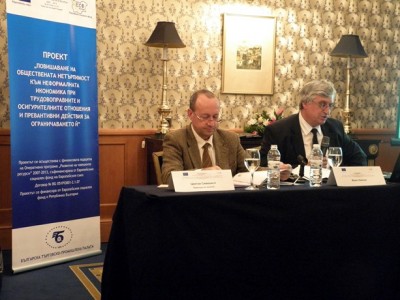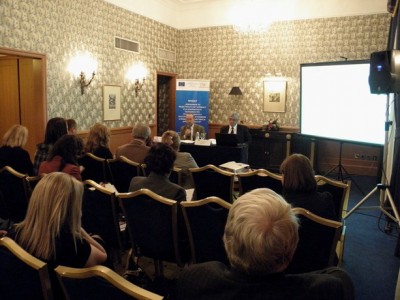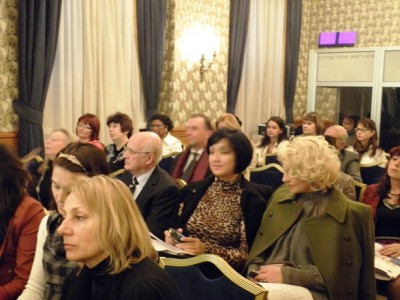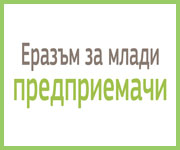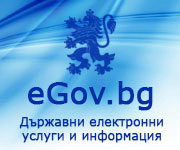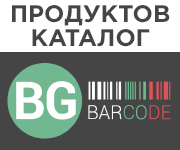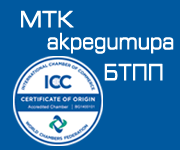Назад
Назад
Highly skilled managers should be elected among university graduates, including women
Information day on the measures and policies for labour market equality of women, disadvantaged people, marginalized ethno-cultural communities and people with different religious beliefs and sexual orientation
Another information day was held under the project “Increasing public intolerance to informal economy in labour and social security relations and preventive actions for its restriction”. The project is implemented with the financial support of Operational Programme “Human Resources Development”, co-financed by the European Social Fund of the European Union.
Mr. Ivan Neikov, Chairman of the Balkan Institute for Labour and Social Policy (BILSP) presented the measures and policies for labour market equality concerning women, disadvantaged people, marginalized ethno-cultural communities and people with different religious beliefs and sexual orientation.
As far as equality of the sexes is concerned, Mr. Neikov explained that there are equality indicators adopted worldwide – social isolation and poverty among women. It was noted that according to an EU survey, Bulgaria is one of the seven countries with largest differences in salary levels between men and women. 61,4% of the women in our country are university graduates, as compared to 38,7% of men with higher education. Meanwhile, it turns out that only 11% of all managerial positions in the country are occupied by women. The Director of the Balkan Institute for Labour and Social Policy concluded that if well-educated managers are required, they should be elected among university graduates, including women. According to another survey, 66% of women work with new technologies as compared to 43% of men. Taking into account all these facts, we could conclude that there is inequality on Bulgarian labour market. However, there are still companies which have adopted equality of sexes as their policy. According to Ivan Neikov this is one of the key factors for increasing competitiveness.
Women face various problems at work – lack of security at their work place and lower chances for professional growth. Sooner or later these problems become problems at the work place. Interestingly, the tendency of discrimination appears mainly in SMEs.
The lecturer concluded that a company often owns its success to equality of sexes. With regard to disabled people he explained that 10% of all people in the European Union have disabilities. At present, discrimination of disadvantaged people is the most widespread one in Bulgaria – 76,1%. There are definitely a lot of incentives for employees with disabilities and their employers. Another interesting fact is that people with disabilities have lower expectations in terms of salary. During the information day religious differences as a factor which doesn’t largely affect employment in our country were discussed, as well as different sexual orientation. It turns out that men more often consider different sexual orientation a disadvantage.
Most often ethnicity is considered an obstacle to employment by the Roma community /24,4%/, by the Turkish ethnic group /12,6%/ and rarely by ethnic Bulgarians /6,9%/. Ivan Neikov explained that sometimes an employee which differs most of all others may be the most suitable person for a certain job.
The information day continued with a lively discussion moderated by the President of BCCI Tsvetan Simeonov, with the participation of entrepreneurs from Bulgaria, Macedonia, Bosnia and Herzegovina, Gree
Mr. Ivan Neikov, Chairman of the Balkan Institute for Labour and Social Policy (BILSP) presented the measures and policies for labour market equality concerning women, disadvantaged people, marginalized ethno-cultural communities and people with different religious beliefs and sexual orientation.
As far as equality of the sexes is concerned, Mr. Neikov explained that there are equality indicators adopted worldwide – social isolation and poverty among women. It was noted that according to an EU survey, Bulgaria is one of the seven countries with largest differences in salary levels between men and women. 61,4% of the women in our country are university graduates, as compared to 38,7% of men with higher education. Meanwhile, it turns out that only 11% of all managerial positions in the country are occupied by women. The Director of the Balkan Institute for Labour and Social Policy concluded that if well-educated managers are required, they should be elected among university graduates, including women. According to another survey, 66% of women work with new technologies as compared to 43% of men. Taking into account all these facts, we could conclude that there is inequality on Bulgarian labour market. However, there are still companies which have adopted equality of sexes as their policy. According to Ivan Neikov this is one of the key factors for increasing competitiveness.
Women face various problems at work – lack of security at their work place and lower chances for professional growth. Sooner or later these problems become problems at the work place. Interestingly, the tendency of discrimination appears mainly in SMEs.
The lecturer concluded that a company often owns its success to equality of sexes. With regard to disabled people he explained that 10% of all people in the European Union have disabilities. At present, discrimination of disadvantaged people is the most widespread one in Bulgaria – 76,1%. There are definitely a lot of incentives for employees with disabilities and their employers. Another interesting fact is that people with disabilities have lower expectations in terms of salary. During the information day religious differences as a factor which doesn’t largely affect employment in our country were discussed, as well as different sexual orientation. It turns out that men more often consider different sexual orientation a disadvantage.
Most often ethnicity is considered an obstacle to employment by the Roma community /24,4%/, by the Turkish ethnic group /12,6%/ and rarely by ethnic Bulgarians /6,9%/. Ivan Neikov explained that sometimes an employee which differs most of all others may be the most suitable person for a certain job.
The information day continued with a lively discussion moderated by the President of BCCI Tsvetan Simeonov, with the participation of entrepreneurs from Bulgaria, Macedonia, Bosnia and Herzegovina, Gree
23.11.2011
Още новини:
-
22-11-2011
-
16-11-2011
-
12-11-2011

 1 USD =
1 USD =  1 GBP =
1 GBP =  1 CHF =
1 CHF =  ISO 9001:2015
ISO 9001:2015